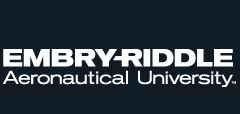Proposal / Submission Type
Peer Reviewed Paper
Location
St. Paul, Minnesota
Start Date
21-5-2010 9:30 AM
Abstract
Computer forensics involves the investigation of digital sources to acquire evidence that can be used in a court of law. It can also be used to identify and respond to threats to hosts and systems. Accountants use computer forensics to investigate computer crime or misuse, theft of trade secrets, theft of or destruction of intellectual property, and fraud. Education of accountants to use forensic tools is a goal of the AICPA (American Institute of Certified Public Accountants). Accounting students, however, may not view information technology as vital to their career paths and need motivation to acquire forensic knowledge and skills. This paper presents a curriculum design methodology for teaching graduate accounting students computer forensics. The methodology is tested using perceptions of the students about the success of the methodology and their acquisition of forensics knowledge and skills. An important component of the pedagogical approach is the use of an annotated list of over 50 forensic web-based tools.
Keywords: Accounting, auditing, forensics, learning styles, MBA, curriculum design.
Scholarly Commons Citation
Kearns, Grover S., "Computer Forensics for Graduate Accountants: A Motivational Curriculum Design Approach" (2010). Annual ADFSL Conference on Digital Forensics, Security and Law. 5.
https://commons.erau.edu/adfsl/2010/friday/5
Included in
Computer Engineering Commons, Computer Law Commons, Electrical and Computer Engineering Commons, Forensic Science and Technology Commons, Information Security Commons
Computer Forensics for Graduate Accountants: A Motivational Curriculum Design Approach
St. Paul, Minnesota
Computer forensics involves the investigation of digital sources to acquire evidence that can be used in a court of law. It can also be used to identify and respond to threats to hosts and systems. Accountants use computer forensics to investigate computer crime or misuse, theft of trade secrets, theft of or destruction of intellectual property, and fraud. Education of accountants to use forensic tools is a goal of the AICPA (American Institute of Certified Public Accountants). Accounting students, however, may not view information technology as vital to their career paths and need motivation to acquire forensic knowledge and skills. This paper presents a curriculum design methodology for teaching graduate accounting students computer forensics. The methodology is tested using perceptions of the students about the success of the methodology and their acquisition of forensics knowledge and skills. An important component of the pedagogical approach is the use of an annotated list of over 50 forensic web-based tools.
Keywords: Accounting, auditing, forensics, learning styles, MBA, curriculum design.

